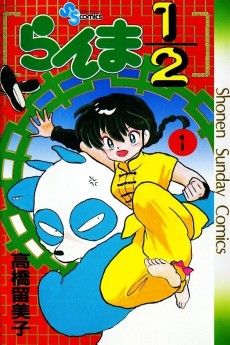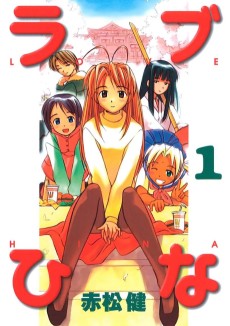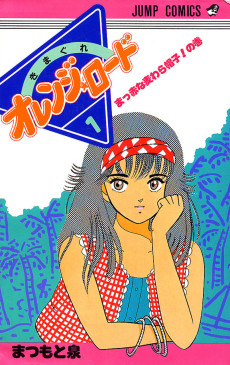MAISON IKKOKU
STATUS
COMPLETE
VOLUMES
15
RELEASE
April 1, 1987
CHAPTERS
162
DESCRIPTION
Travel into Japan's nuttiest apartment house and meet its volatile inhabitants: Kyoko, the beautiful and mysterious new apartment manager; Yusaku, the exam-addled college student; Mrs. Ichinose, the drunken gossip; Kentaro, her bratty son; Akemi, the boozy bar hostess; and the mooching and peeping Mr. Yotsuya. Funny, touching, and a tad off-kilter, Maison Ikkoku is the great Rumiko Takahashi at her very best.
(Source: Viz Media)
CAST
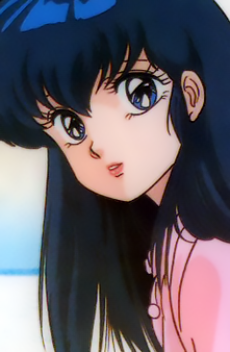
Kyouko Otonashi

Yuusaku Godai

Yotsuya

Akemi Roppongi
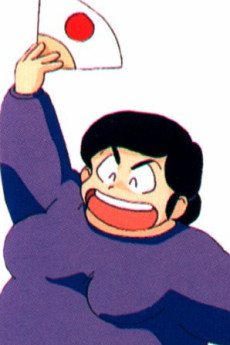
Hanae Ichinose
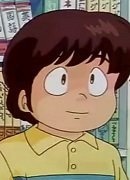
Kentarou Ichinose
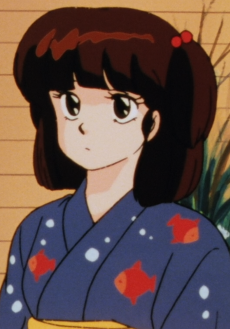
Ibuki Yagami

Shun Mitaka

Kozue Nanao
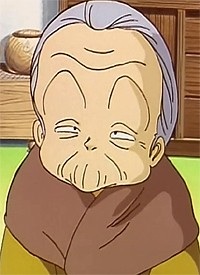
Yukari Godai
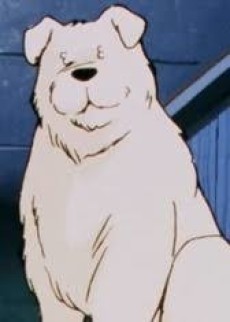
Soichirou-san

Asuna Kujou
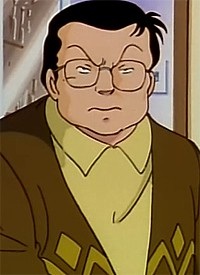
Chigusa-ji

Sayoko Kuroki

Souichirou Otonashi

Iioka

Otonashi-roujin
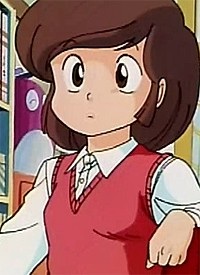
Ikuko Otonashi

Kasumi
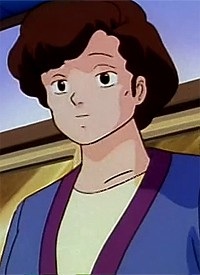
Ritsuko Chigusa
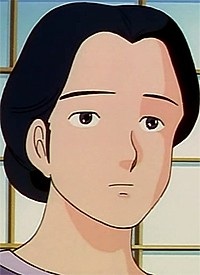
Asuna no Haha

Kozue no Chichi

Ayako

Yagami no Chichi
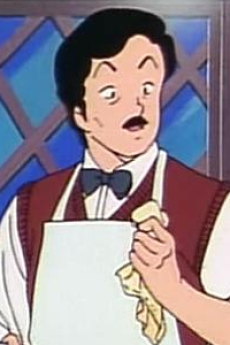
Chachamaru no Master
CHAPTERS
RELATED TO MAISON IKKOKU
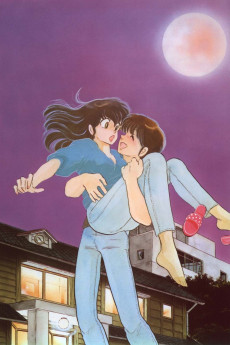 ANIME ComedyMaison Ikkoku
ANIME ComedyMaison IkkokuREVIEWS

Mykurr
64/100Oddly obnoxious yet endearing to me.Continue on AniListI’m going to be honest, the biggest reason I decided to give this manga a shot is simply because it was referenced in a Kaiji spin-off. It also helps that it's a Rumiko Takahashi manga that has significant reverence as one of the better romcoms out there. Considering that many circles I'm in have also greatly praised this manga, I thought it would actually come to be one of my favorites as well. Did it accomplish that? Maybe not, but it definitely accomplished writing its own unique story in its own terms.
One of the most surprising thing I can glean from this is that despite being hailed a classic, a lot of its tropes don’t seem to have been repeated and continued by romcoms in the present. Certain elements of character indecisiveness, multiple characters having multiple love interests rather than just being only one, all of this feels oddly mature in how it presents these characters as being deeply flawed. Granted it really does ride a fine line between endearing and obnoxious and at times completely trips itself up. Yet because of all this, it feels oddly refreshing that despite how old it is that its still quite the unique experience in reading this.
Another issue I have is that despite introducing some really interesting characters, the story sometimes doesn't do much with them after their introduction, even having them disappear for up to 30+ chapters even if they’re a resident of Maison Ikkoku. By the time you finally get to see them again, the manga is already wrapping itself up towards the conclusion. Because of this, some character arcs feel incredibly unfulfilled when they just show up suddenly in the story again after being gone for so long and all of a sudden they just have this huge turning point that feels unrewarding with how little we’ve seen them. I wish I could love the characters more, but this story really doesn't give me many opportunities to.
Nonetheless, this manga does indeed have charm. Rumiko Takahashi's trademark art style is very fitting in a comedic yet adult story about growing into a proper adult who can support oneself. Despite very closely inching to same face syndrome, each character is oddly distinct enough that I never really confuse them despite characters Like Godai, Nikaido, and Mitaka having very similar faces. The backgrounds with certain locations such as Maison ikkoku and the various townspots surrounding the boarding house are also depicted to be very vibrant and lively which adds more to the setting. Regardless of my opinions on Maison Ikkoku's story, I would definitely read more Rumiko Takahashi for her designs alone.
Ultimately, there’s an element of relatability and wistfulness in reading Maison Ikkoku with how Yusaku Godai develops throughout the story. Going from a Ronin to a college student and then trying to find a job is painfully easy to grasp especially if one had similar life experiences. His relationship with the main heroine, Kyoko Otonoashi, despite having hiccups that can amuse and annoy is still endearing with how it all works out in the end is very heartwarming to see the whole journey through. I like this manga, but it's not as up there as I wanted it to be.

DNSS
100/100Can we go on loving?: To love is to fear losingContinue on AniListPreface
Damn, it must be great to be Rumiko Takahashi. Imagine this, starting your career at just 21 years old. Right out the gate, no time wasted, she creates Urusei Yatsura, one of the most influential manga series of all time, whose impact still resonates across countless titles today. Absolutely astounding.Two years later, she begins serializing Maison Ikkoku, a mature, intimate romance that couldn’t be more different from her debut work. Just look at this woman’s mangagraphy, her résumé — the sheer talent and impact she’s had, all while refusing to slow down even now, at 67 years old!
Any attempt to analyze her work must, of course, begin with the utmost respect and reverence for this legendary writer, a true cornerstone of Japanese artistic canon. But honestly, even a mediocre AI could compile a dry list of facts about Takahashi’s influence on manga history. So, I’ll leave that part to the machines and stick to the human art of writing. If you’re curious — or if you’ve been living under a rock and don’t know who Rumiko Takahashi is — go google her, crack open an encyclopedia, read her bio. Because her name disappears from here on out.
My goal is to honor her work. And to do that properly, we must discuss her art through her art — not through external accolades. There’s no need to lean on her authority, her importance, or her unshakable integrity as an artist. Those are essential for understanding her as a cultural figure, but not for grasping her stories. Her works stand on their own. Their quality speaks for itself, transcending time and culture.
From this point on, we talk about Maison Ikkoku and Maison Ikkoku only.
Now, let’s talk about love.
__COME FLY WITH ME__ 
Can I tell you what Maison Ikkoku is about? Damn it, you haven’t read it yet? Well, you should. Maison Ikkoku is about love, about falling in love, letting yourself be loved, and, above all, fearing love.
We follow Yusaku Godai, a clumsy, down-on-his-luck ronin with bleak prospects, living in a tiny boarding house surrounded by a ragtag group of troublemakers hell-bent on making his life miserable. There’s Yotsuya, a creepy voyeur; Akemi, an uninhibited waitress; and Hanae, a middle-aged woman who loves to drink — key players in this claustrophobic, oppressive, and enraging household.
Fed up with this daily hellscape that only hinders his studies, Godai decides to move out, desperate to escape his chaotic neighbors. But not so fast — a small surprise throws his plans into disarray. A new manager takes over Maison Ikkoku: our heroine, Kyoko Otonashi. Beautiful, young, and deeply melancholic, Kyoko immediately catches the eye of the ever-fickle Godai.
You know, it’s funny — and not at all surprising — but 45 years later, men haven’t changed one bit. Godai perfectly embodies the timeless stereotype of the shallow guy who falls for the first pretty woman who shows up. I feel you, Godai. I really do. If she’s kind? Even worse. How do you not fall in love? Love isn’t that complicated, it's just so easy.
And so begins our story: a young man with no present, surviving only on hope for the future, meeting a young woman also without a present — but one trapped in her past. Can love bloom between them?
__THE MAN LOST IN THE FUTURE AND THE WOMAN STUCK IN THE PAST__ 
Can we live without love? If you don’t love, you want to. If you already love, you want to keep loving. And when you lose love — how do you love again? Kyoko Otonashi carries an immeasurable pain: the endless grief of her first love, her late husband. A widow at just 22, Kyoko resigns herself to solitude. She’s kind, warm, and nurturing — yet romantically untouchable. The locks on her heart are unbreakable.
Kyoko doesn’t see — or want — a future. With her love ripped away so violently, the idea of new stories feels impossible for a heart still clinging to cherished memories.
So what Godai faces isn’t just the challenge of building new love — but dismantling an old one. Opening her heart to him would feel like a betrayal of her past. For someone devoted to a lost love, what does it mean to love again? If we love, can we ever stop? Can we replace a true love? Can we forgive ourselves for moving on?

The answers aren’t clear. Solutions are tangled. And with Godai being so clumsy and untrustworthy, any hope of a simple resolution is doomed. How do you compete with the idealized memory of a flawless love when you’re a walking disaster?
This is where Maison Ikkoku’s brilliance shines — its uproarious comedy perfectly balancing its romantic drama. Disastrous misunderstandings and dragged-out conflicts aren’t just cheap plot devices to prolong the story. No. These inconveniences shape Godai’s growth and his evolving feelings.

Godai is indecisive, impulsive, unreliable, desperately needy, and riddled with low self-esteem. His life revolves around an uncertain future — getting into a mediocre college for a major he’s too ashamed to admit. This slow, shaky journey actually mirrors his own insecurities. Because while he awaits the solutions to his life in the hope of a better future, he fears them just as much, for the simple possibility that he won't find the solution to his problems in them.
It’s tragic. But that’s love. Godai doesn’t live in the present and dreads the future. Kyoko doesn’t live in the present and dreads the past.
Love, save us.
__TIME WILL HEAL__ 
This melancholic romance, disguised as a side-splitting comedy, walks a delicate tightrope.
The pain of losing a loved one can’t be measured. Grief hits everyone differently. Losing a true love? Even worse. But Kyoko must eventually realize that life doesn’t end when a loved one is gone. Choosing eternal mourning isn’t proof of love or loyalty — it’s self-sabotage. Life goes on, and building that future is these characters’ duty. Our duty aswell.
We don’t need to go as far as grief — even breakups make the point. Let’s be honest for a moment. Think back, dear reader, to your old loves. How many survived? How many remain, and how many faded? For me, a modern-day Godai, the examples are painfully vast.

For Kyoko, a new romance isn’t betraying her past love—it’s a chance to love again. This isn’t a polyamorous manifesto; let’s not get tangled here. Don’t cheat, don’t abandon your passions—but never stop moving forward. We don’t have to erase the past to embrace the present. Old memories can coexist with new realities.
Maison Ikkoku masterfully illustrates human uncertainty with impeccable subtlety and sharp humor. Through brilliant, immersive writing, we witness a story that’s cruel, hilarious, and heartwarming. Love serves to mend all this, curing insecurities and complementing each other's flaws; to love is to put together a puzzle, after all. The fragility of the future, the nostalgia for a perfect past, the disposable present—a purgatory separating past fears from future hopes. In the end, as my favorite saying goes: Jacaré parado, vira bolsa.
As a historian by background, my answer is always the same: Time. Never stop loving.

SIMILAR MANGAS YOU MAY LIKE
 MANGA ComedyAsatte Dance
MANGA ComedyAsatte Dance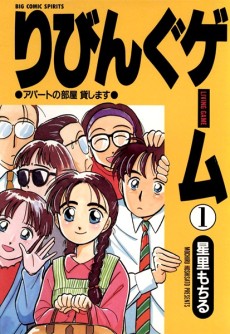 MANGA ComedyLiving Game
MANGA ComedyLiving Game MANGA ComedyUrusei Yatsura
MANGA ComedyUrusei Yatsura MANGA ComedyHachimitsu to Clover
MANGA ComedyHachimitsu to Clover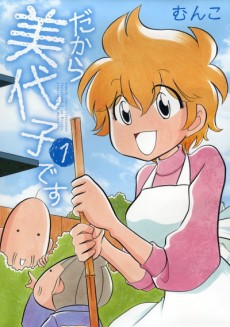 MANGA ComedyDakara Miyoko desu
MANGA ComedyDakara Miyoko desu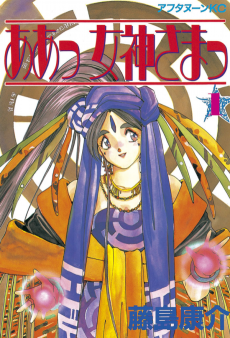 MANGA ComedyAa! Megami-sama!
MANGA ComedyAa! Megami-sama!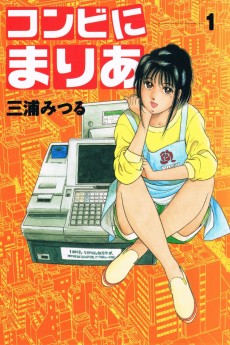 MANGA ComedyConbini Maria
MANGA ComedyConbini Maria
SCORE
- (4/5)
MORE INFO
Ended inApril 1, 1987
Favorited by 342 Users


